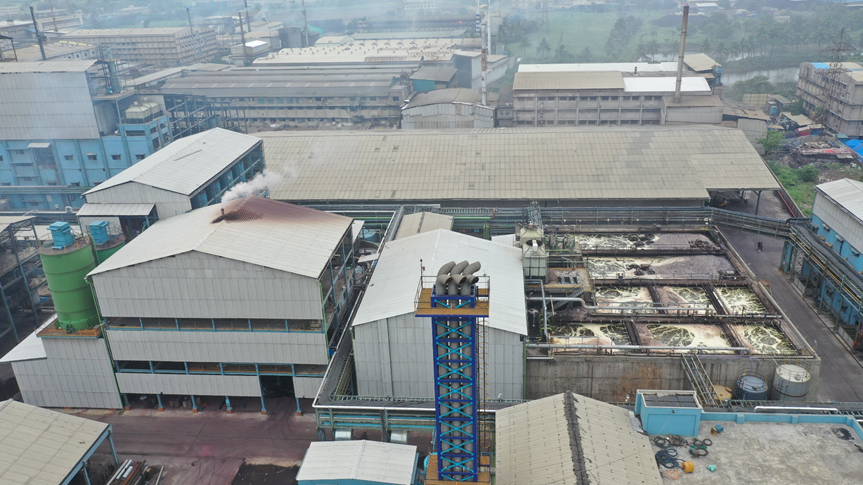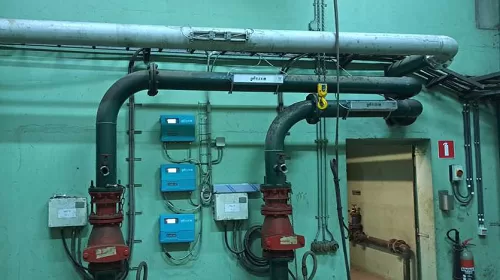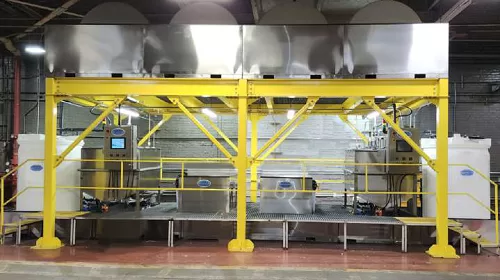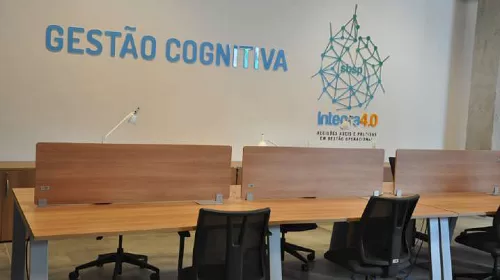Bio Petro Clean India Pvt Ltd (BPC India) stands as the wholly-owned Indian subsidiary of Bio Petro Clean Ltd in Israel (BPC Israel), a distinguished provider of wastewater treatment technologies and solutions. Over the past decade, BPC India has been at the forefront of delivering 100% “Made in India” solutions for wastewater treatment plants across multiple sectors in India. Additionally, these solutions have been successfully exported to Israel, South Africa, and Nigeria from India.
BPC’s comprehensive technology and solutions portfolio includes:
- Automation Packages: These packages are coupled with operational supervision for both new and existing wastewater treatment plants, facilitating consistent treatment quality while simultaneously reducing operational expenses.
- Advanced Automated Chemostat Bioreactor: Designed for both new and existing wastewater treatment facilities, this technology enables the achievement of higher treatment quality, increased flow rates utilizing existing infrastructure, and the reduction of operational costs. It’s particularly effective at treating challenging contaminants present in wastewater, such as phenols, glycols, BTEX, high shock loads of ammonia and sulphides, and volatile compounds like BTEX.
- Digitization Solutions: BPC offers digitization solutions for water and wastewater treatment plants, including Reverse Osmosis (RO), Effluent Treatment Plants (ETP), and desalination sites. These solutions streamline data collection, centralize data analytics, and provide deep insights to reduce operating expenses, predict operational disruptions, and elevate treatment quality. Notably, these solutions can be implemented swiftly, typically within a week.
All these solutions are offered in a Build-Own-Operate (BOO) mode, with monthly billing, and come with a comprehensive guarantee of consistent treatment quality, even for challenging effluents.
This case study offers a brief insight into how the application of these technologies in the Dyes & Chemical Sector and Refinery sector yielded higher quality treatment and increased recovery rates using existing infrastructure.
Dyes & Chemical Sector:
The primary objective of a Dyes & Chemicals factory in Surat, Gujarat was to treat effluent to meet the inlet standards of the industrial zone’s Common Effluent Treatment Plant (CETP). This endeavor was complicated by high Total Dissolved Solids (TDS) levels, persistent fluctuations in Chemical Oxygen Demand (COD), and pH.
Previously, the company had attempted two biological treatment technologies, SBR and MBR, but encountered difficulties due to the following issues:
- High TDS Levels: TDS levels fluctuated between 15,000 ppm and 30,000 ppm.
- Fluctuating COD and BOD: High and fluctuating COD (Chemical Oxygen Demand) and BOD (Biological Oxygen Demand) at the process inlet.
These challenges resulted in continuous upsets of the biological treatment systems, ultimately rendering the systems incapable of achieving the requisite treatment quality and quantity.
BPC India was entrusted with the task of upgrading the Effluent Treatment Plant (ETP), with the goals of:
- Treating 4 MLD (Million Liters per Day) flowrates within the available space.
- Developing a biological treatment process capable of handling high and fluctuating TDS levels.
- Maintaining COD levels below 2000 ppm in the treated effluent.
BPC’s Automated Chemostat Bioreactor (ACT) system was instrumental in addressing these challenges, managing high and fluctuating TDS levels (averaging around 20,000 ppm with occasional spikes up to 35,000-40,000 ppm) and rapidly fluctuating COD levels. The ACT Bio-Process effectively treated elevated COD values with fluctuations and ensured that the outlet COD remained at approximately 2,000 ppm, even when dealing with high and fluctuating TDS levels in the wastewater.
An additional critical aspect of the project involved chemical dosing automation for pH adjustment. Inlet pH levels ranged from 0 to 2, making it a commercial challenge to maintain pH levels between 6 and 7. BPC’s automated chemical dosing system, which utilized controlled dosing of lime slurry, played a pivotal role in stabilizing the process while simultaneously reducing the consumption of lime slurry through precise dosing, resulting in cost savings.
This Crude Oil Refinery Complex in India is equipped with two Effluent Treatment Plants (ETP’s), each designed to handle a flow rate of 400 m³/hour. However, due to significant fluctuations in effluent parameters, these ETP’s struggled to meet the required treated effluent standards for discharge and to supply the Reverse Osmosis (RO) feed, leading to excessive consumption of freshwater.
Both ETP’s adhered to conventional designs, encompassing inlet tanks, TPI separators, equalization tanks, Dissolved Air Flotation (DAF), pH Neutralization, Bio-towers, Activated Sludge Process (ASP), Bio-Clarifiers, and Sand & Carbon Filters. The Refinery had received a notice from the National Green Tribunal of India, necessitating an improvement in the ETP’s performance within a 6-month timeframe.
In 2019, after careful consideration, the Refinery opted to partner with BioPetroClean (BPC) for this upgrade on a Build-Own-Operate (BOO) basis. The Refinery faced the challenge of sudden surges in Oil and Grease, Chemical Oxygen Demand (COD), Ammonia, and sulphides, leading to continuous upsets in the pre-treatment and biological treatment sections. This resulted in effluent failing to meet specifications and being rejected by the UF-RO unit, which was installed to recycle wastewater, thereby necessitating a significant intake of freshwater to compensate for the non-compliant effluent.
BPC successfully completed the upgrade of both ETP’s within the allotted 6 months, seamlessly integrating its technologies into the existing infrastructure with minimal disruption to operations. The upgrade comprised the following key elements:
- Implementation of BPC’s Wastewater Treatment Plants Process Automation Package.
- Application of BPC’s advanced Bio-remediation technology.
- Deployment of BPC’s PureBI, a digitization platform for real-time data collection and predictive analytics in water and wastewater treatment plants. PureBI continually monitors and optimizes process efficiencies and treatment costs in real-time, utilizing integrated AI and ML to predict potential disruptions in treatment processes and costs, allowing for proactive prevention.
Following the upgrade, both ETP’s consistently achieved high-quality effluent, even when faced with fluctuations and values exceeding their original design specifications. The treated effluent could be used directly as RO feed without requiring dilution or storage in off-spec effluent tanks. This led to a remarkable 90% reduction in freshwater consumption at the refinery complex, resulting in substantial operational cost savings.
BPC has been efficiently managing this BOO site for four years since 201





